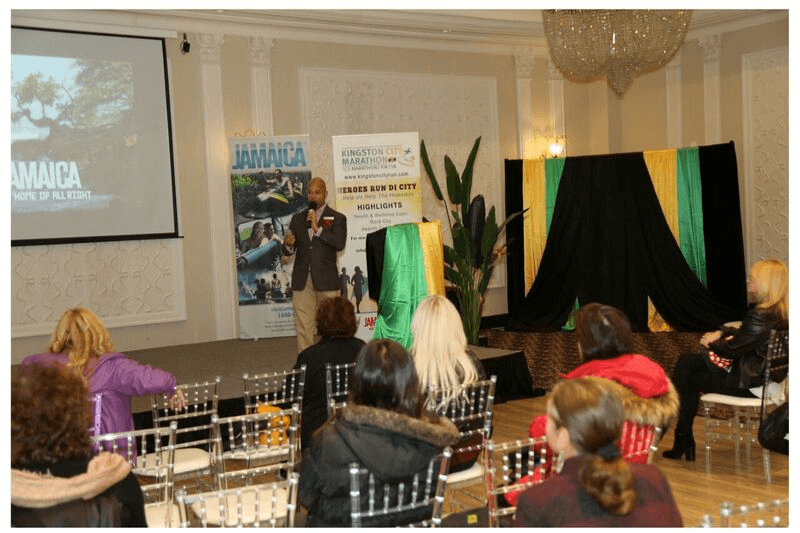A great tribute during the 146th anniversary of Kingston as Jamaica’s official capital
The annual Kington City Run in 2019 will introduce for the first time ever – The Kingston City Marathon (KCM). This announcement came at the Kingston City Run Press Launch event from Nicola Madden-Greig co-chair of the annual Kingston City Run now going into its 7th year.
At the event, Mrs. Madden-Greig explained that the move is “exciting news for the competitive marathoners both residing locally and overseas. In addition, the marathon, half marathon and 10K routes are now certified, with the courses measured in September by IAAF/AIMS International Measurement Administrator for the Americas, Bernie Conway, an A class measurer.
The 2019 run will take place from March 15-17, 2019 and will continue to feature the 5k Run/Walk, 10K and 1⁄2 Marathon routes.
The Kingston City Run was started in 2013 as the brainchild of then Jamaica Hotel & Tourist Association (JHTA), Kingston Chapter Chairman, Nicola Madden-Greig. The event is organized annually by The JHTA Kingston Chapter along with key strategic partners The Jamaica Hotel & Tourist Association, The Jamaica Tourist Board (JTB), The Norman Manley International Airport (NMIA) and the Kingston & St. Andrew Municipal Corporation (KSAMC). The event is currently co-chaired by Christopher Jarrett (Area Chairman: JHTA Kingston) and Nicola Madden-Greig (Immediate Past President: JHTA). The event is not-for-profit with proceeds going towards deserving charities. Over the years since inception, a specific focus has been on the homeless population.
According to co-chair Christopher Jarrett, “we are pulling out all the stops to make this event truly memorable.” The organizers are equally excited about the new addition of a marathon which is being staged incorporating international racing standards. Similar to previous races in the past, chip timing technology will be maintained allowing participants to feel confident of their winning time.
Through working with partners such as the Jamaica Hotel & Tourist Association, The Jamaica Tourist Board and the Norman Manley International airport, there are plans to partner with airlines and hotels to offer affordable packages for their overseas participants. It was also announced that this year the event will be utilizing new registration technology through a partnership with Active.com.
The full marathon will take the similar scenic route beginning in New Kingston, through Devon House and Kings House along Hope Road passing the Bob Marley museum, loops around, and ends at the beautiful Emancipation Park Race Village for post-run celebrations, awards ceremony and finish line “reggae” party.
There will be several pre and post events to keep the runners on a “high” leading up to the event as well as over the race weekend starting on Friday, March 15 – Welcome party; Saturday, March 16 – Lifestyle and Fitness Expo, Pre-Race party; and Sunday, March 17 – Race day.
The event was conceptualized for two main purposes: to help raise funds to support projects for the homeless in Kingston, and to raise the awareness of Kingston as a travel destination, thereby increasing the number of visitors to the city. The event was started in 2013 and from its inception has raised over $15 million Dollars to give to deserving charities.
Proceeds from the 7th staging of the KCM will again target the homeless population through specific charities. This year there will also be a focus on mental health. The organizers will be providing more details on the specific programmes to benefit in 2019.
For more information on the event, its beneficiaries, registration and other ways to donate without running, please visit www.kingstoncityrun.com

